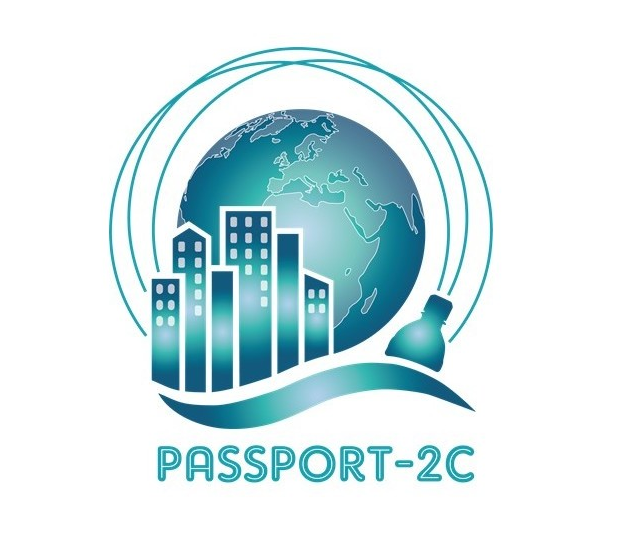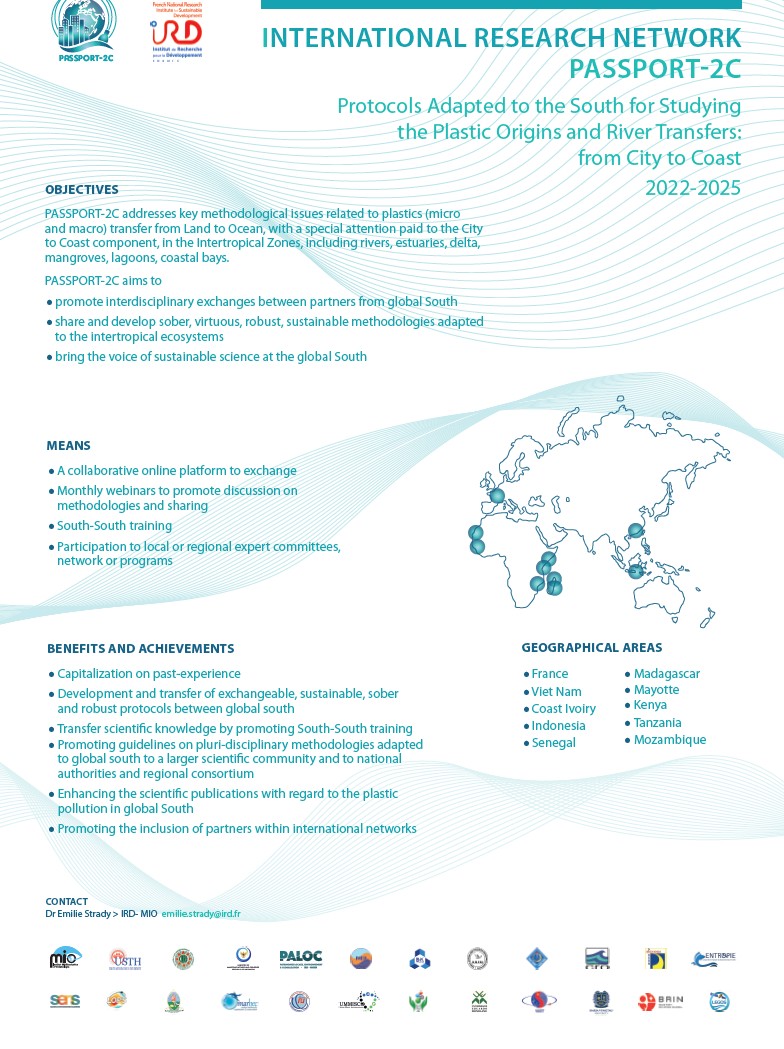Protocols Adapted to the South for Studying the Plastic Origins and River Transfers : from the Cities to the Coast

The scientific community interested by the topic of plastic pollution in the environment is growing worldwide. However, developing countries, pointed out as emitting the most plastic waste to the ocean, are still understudied and plastic pollution poorly understood. The lack of facilities and technical support to develop adapted methodologies or the lack of national and regional coordination among the different stakeholders may explain this difference. The IRD interdisciplinary scientific research community, bringing together French and foreign research teams from global South, hopes to tackle this gap by promoting a scientific approach adapted to the South.
The International Research Network PASSPORT-2C (2022-2025) funded by IRD addresses key methodological issues to promote interdisciplinary approaches and exchanges and to facilitate their transfer and further comparisons between worksites. Its focus will primarily be on the transfer of plastics (micro and macro) from Land to Ocean, with a special attention paid to the City to Coast component in the intertropical zones, including rivers, estuaries, delta, mangroves, lagoons and bays. PASSPORT-2C aims to promote exchanges between partners, and sharing and development of sober, virtuous, robust, sustainable methodologies adapted to the intertropical ecosystems, for studying plastic transfer from city to coast. These methodologies are based on field and lab analytical protocols, model parameterizations, deep learning, machine learning, image analysis, social survey and participatory observatories. PASSPORT-2C ambition is finally to bring the voice of sustainable science at the global South on plastic pollution in order to ultimately strengthen the inclusion of Southern partners within the International Scientific Committees.
MEANS
- A collaborative online platform to exchange
- Monthly webinars to promote discussion on
- Methodologies and sharing .South-South training
- Participation to local or regional expert committees, network or programs
BENEFITS and ACHIEVEMENTS
- Capitalization on past experience
- Development and transfer of exchangeable, sustainable, sober .and robust protocols between global south
- Transfer scientific knowledge by promoting South-South training
- Promoting guidelines on pluri-disciplinary methodologies adapted .to global south to a larger scientific community and to national
- authorities and regional consortium
- Enhancing the scientific publications with regard to the plastic pollution in global South
GEOGRAPHICAL AREAS
- France
- Vietnam
- Indonesia
- Coast Ivoiry
- Senegal
- Madagascar
- Mayotte
- Kenya
- Tanzania
- Mozambique





